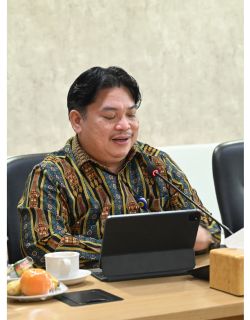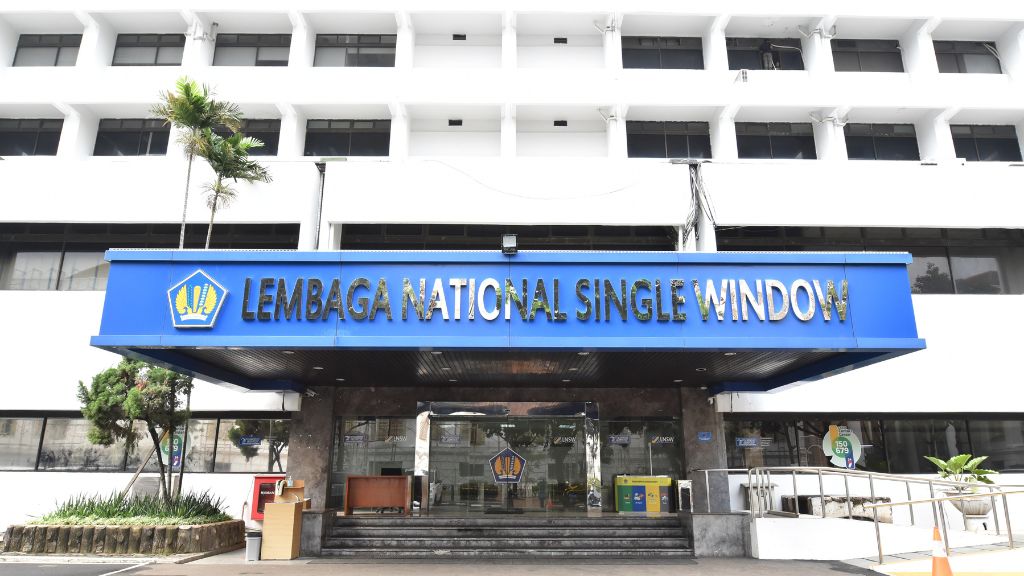As integrated platforms and services become buzzwords in Indonesia’s digital transformation agenda, the National Single Window Agency (LNSW) is already beginning to turn these concepts into action, achieving concrete results.
Established in 2018, under the Ministry of Finance, LNSW has developed Indonesia’s National Single Window System (SINSW) that aims to integrate previously fragmented public services into a centralised platform.
Speaking to GovInsider, LNSW’s IT Director Wawan Ismawandi explains that the agency’s core mission is to drive efficiency in public services especially within the export, import, and logistics sectors by managing the national single window and integrating it with systems across ministries, agencies, and other stakeholders.
“This integration enables a centralised, virtual public service experience, supported by real-time data exchange, not only among the 21 participating ministries and government agencies, but also by involving the private players to strengthen the national logistics ecosystem,” he says.
Ismawandi explained that before LNSW, businesses struggled with a fragmented system for exports, imports, and logistics.
Previously, Ismawandi notes, businesses would have to navigate numerous service portals involving extensive paperwork and would need to repeatedly input data into separate systems maintained by various ministries, such as the Ministries of Trade, Industry, Agriculture, and Transportation, as well as the Investment Coordinating Board.
Now, thanks to the national single window system, businesses can handle many service applications – and this is all possible through a streamlined approach of single submission, synchronous processing, and unified decision-making, he adds.
“Based on an external survey conducted in 2024, the SINSW has increased service speed by 66.5 per cent and reduced costs by 63.39 per cent,” Ismawandi notes.
Secure APIs and infrastructure as a foundation
SINSW’s technology architecture utilises API management, web services, and host-to-host integration to enable interoperability between the ICT systems of ministries and agencies.

There are future plans to integrate SINSW with business systems and private digital service providers, he adds.
However, as not all ministries have the same level of technology maturity and this has resulted in varied adoption rates of system and infrastructure integration.
To counter this, LNSW has adopted a flexible approach, by accommodating semi-manual processes while at the same time promoting digitalisation.
“From the beginning, we realised that not all ministries involved in the SINSW had the same level of ICT maturity. At LNSW, we had to adjust gradually to enable them to integrate step by step while maintaining trust through transparency and service speed.”
To secure the system, LNSW has implemented Static Application Security Testing (SAST) during both design and development stages, and uses Single Sign-On with Multi-Factor Authentication (MFA) to provide user access management.
“We have also obtained ISO 27001 certification for our information management system,” adds Ismawandi, emphasising the agency’s commitment to continuously improve its capability by implementing best security practices to manage sensitive data.
To subscribe to the GovInsider bulletin, click here.
AI adoption and ‘superapp’ experience
As artificial intelligence (AI) and automation gain momentum within government operations, LNSW has also begun incorporating AI processes into its systems.
“We have started utilising AI, not only for chatbots but also to provide relevant information to businesses around the clock,” he says.
He adds that LNSW is also developing an AI-based Indonesia Single Risk Management (ISRM) system to manage business risk profiles based on compliance history and transactional data.
AI will help analyse complex data to generate automatically updated risk scores aligned with the latest business activities, allowing ministries and agencies to act on these insights when delivering public services.
This risk-based approach allows ministries to prioritise compliant, low-risk businesses for faster services, while compliance enforcement resources within ministries can work more intelligently by focusing on higher-risk entities based on available data.
“It’s similar to how banks determine credit risk profiles. If a business has a good track record, the licencing process can be quicker,” he explains.
Since 2022, LNSW has operated INSW Gen-2, consolidating separate applications into a more integrated system through the single submission approach.
Now, LNSW is preparing for INSW Gen-3, with a vision of creating single credentials and unified profile management for businesses within the INSW ecosystem.
“My vision for the future is to improve the user experience and journey from a citizen-centric, user-centric perspective,” says Ismawandi.
INSW Gen-3 will offer a single interface similar to a superapp, integrating export-import licensing, logistics services, and non-tax state revenue payments within one unified platform.
“Businesses will be able to select logistics providers, manage permits, and make payments through a single interface, enhancing the user experience while remaining compliant with government regulations,” he adds.
Additionally, INSW Gen-3 will provide host-to-host services to support rapid technological advancements within in-house business systems and third-party digital service providers.
Valuable lessons for integrated services
The INSW framework’s measured and structured approach offers valuable lessons for enhancing Indonesia’s digital public services, aligning with the government’s push for digital transformation and integrated public services.

“The most important factor is commitment and the establishment of a dedicated agency to manage this integration,” says Ismawandi.
He further emphasises the importance of clear objectives and pragmatic strategies in managing cross-agency digital integration.
“We must stress [to all stakeholders] that these efforts are not only for the interests of specific ministries or agencies, but for national competitiveness and interests,” he notes.
Indonesia’s approach of establishing LNSW as a dedicated agency is a unique aspect, making the country a role model for National Single Window implementation in ASEAN.
Other ASEAN countries would typically place this function under their customs or trade ministries.
LNSW is now actively participating in the ASEAN Single Window Gateway, exchanging electronic Certificates of Origin, customs documents, and quarantine documents with ASEAN partners.
LNSW is also expanding connectivity through the LNSW Gateway, enabling bilateral electronic document exchanges with China, Japan, South Korea, and Australia, with ambitions to expand cooperation to European partners.